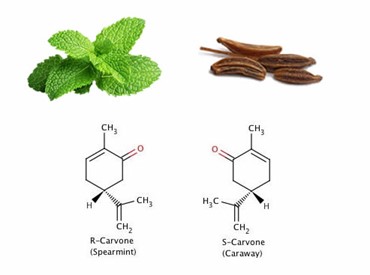
To listen to this reflection as a podcast, click here.
Left Hands and Right Hands
When it comes to human society, left-handers are few and far between. It’s estimated that only 10% of the people you know throw, kick, and write by favoring their left side.
But when it comes to the molecules of life, left-handers rule.
Proteins, the most important chemical compounds of living things, are comprised of smaller building blocks called amino acids. Just as we use different combinations of our 26-letter English alphabet to create more than a million words, we know that 20 different amino acids organize themselves in various ways within living systems to yield millions of different proteins.
What’s fascinating to scientists – and something that remains one of the great unsolved mysteries of biology – is why all of the amino acids in living things are left-handed.
What does that mean?
Think of holding your right hand up to a mirror. What you see is an image that looks just like your left hand. We would say there isn’t much difference between the two, except that a right hand cannot easily wear a left-handed glove.
But things can be different in the realm of chemistry. Mirror-image isomers – that is, chemicals that are absolutely identical in composition but differ in orientation – can have strikingly different properties. Check out the illustration above. Carvone is a chemical that is found in many essential oils. But left-handed and right-handed carvone compounds stimulate our taste buds in different ways. Left-handed carvone tastes like spearmint and has been used for decades to flavor Wrigley’s Spearmint gum. Right-handed carvone provides that wonderful carraway sensation you get when sampling rye bread.
They’re exactly the same chemical. The only difference is their mirror-image “handedness” (or “chirality,” as chemists like to call it).
It makes sense that the universe is filled with both left-handed and right-handed amino acids. But living systems are constructed exclusively of left-handed components. Right-handed amino acids, although chemically identical, simply don’t work. Nobody knows why.
These are no doubt the kinds of observations that might help you fall asleep at night if you’ve run out of Ambien. The authors of my college textbook in organic chemistry seemed to sense that, which is why they included exactly one joke over the course of their 800-plus pages. It was in the chapter on mirror-image isomers.
The authors wrote, “Everything has a mirror image.” When I read that decades ago, I noticed an asterisk at the end of the sentence which led me to the bottom of the page. That’s where I found, “Except, of course, vampires.”
That was one of the happiest moments of my entire formal education.
Bram Stoker, the British author who popularized the Dracula myth towards the end of the 19th century, never explained why the notorious undead count of Transylvania could neither cast a shadow nor create a reflection in a mirror. Readers have speculated that this is evidence Dracula no longer has a soul, or perhaps that his image is nullified by the thin layer of silver on the back of a mirror, much as silver bullets and silver stakes are bad news for werewolves and ghouls.
It might be safest to say that Dracula keeps his distance from mirrors because each one provides a reminder that he has lost what matters more than anything else.
There are several places in his Sermon on the Mount (Matthew chapters 5-7) where Jesus stirs up just that kind of drama. Since nothing matters more than the condition of our soul, we must do everything we can to keep it fully aligned with God.
Left and right hands even come into the picture.
Jesus says, “But when you give to the needy, do not let your left hand know what your right hand is doing, so that your giving may be in secret. Then your Father, who sees what is done in secret, will reward you” (Matthew 6:3-4).
Jesus, of course, is being extreme. Only a seriously unhealthy person could do something with one hand while simultaneously withholding such information from himself.
Eugene Peterson’s paraphrase in The Message effectively gets at the core meaning of Jesus’ words: “When you do something for someone else, don’t call attention to yourself. You’ve seen them in action, I’m sure—‘playactors’ I call them—treating prayer meeting and street corner alike as a stage, acting compassionate as long as someone is watching, playing to the crowds. They get applause, true, but that’s all they get. When you help someone out, don’t think about how it looks. Just do it—quietly and unobtrusively. That is the way your God, who conceived you in love, working behind the scenes, helps you out.”
Why does this matter so much?
Your soul – that is, who you really are – is at risk.
One of the most difficult things in the world is to do something kind or gracious or sacrificial for someone else – and then not tell anyone about it. No wonder secrecy is considered one of the most transforming of all the spiritual disciplines.
Don’t wait for Christmas to adopt the role of a secret Santa.
This weekend, quietly come up with a plan to bless somebody. Don’t let anyone else know. Keep it so low key that it will almost be as if your left hand doesn’t know what your right hand is doing.
Then step back and enjoy that moment with God, just the two of you.
